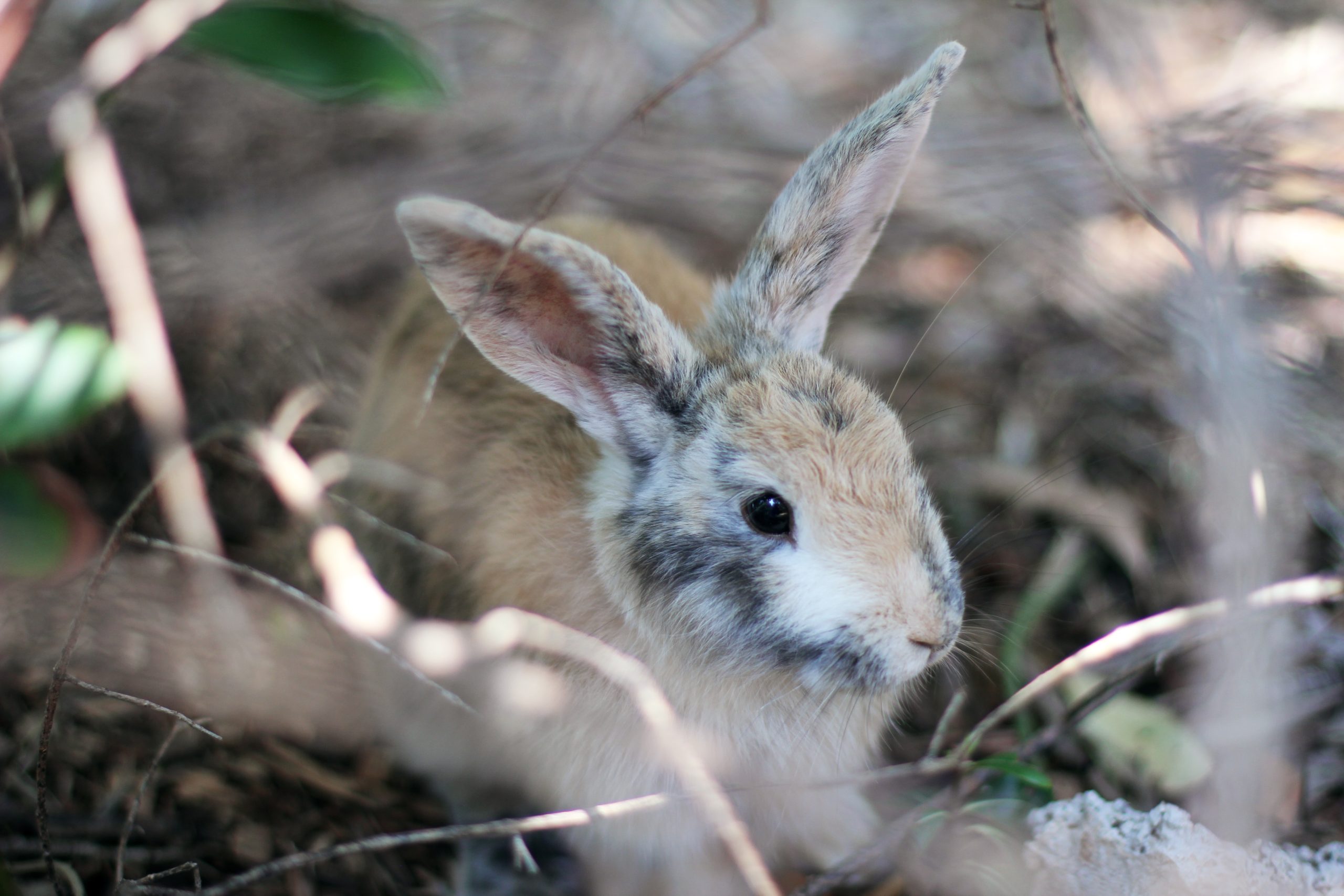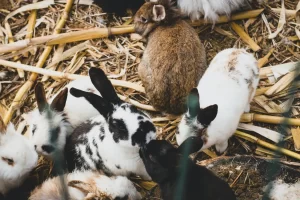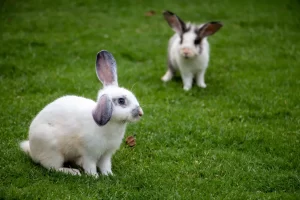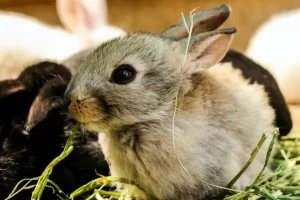Are you worried about your dehydrated rabbit? Don’t panic! In this article, we’ll guide you through the steps to save your furry friend.
By recognizing the signs of dehydration and assessing its severity, you’ll be able to take immediate action. Learn effective hydration techniques and how to reintroduce food and fluids.
With our expert advice, you’ll be equipped to monitor and prevent dehydration in rabbits, ensuring their well-being.
Let’s get started and give your rabbit the care it deserves.
In This Article
- 1 Key Takeaways
- 2 Recognizing the Signs of Dehydration
- 3 Assessing the Severity of Dehydration
- 4 Hydration Techniques for Dehydrated Rabbits
- 5 Reintroducing Food and Fluids
- 6 Monitoring and Preventing Dehydration in Rabbits
- 7 Frequently Asked Questions
- 7.1 How Much Water Does a Rabbit Need to Drink Daily to Prevent Dehydration?
- 7.2 Can Dehydration in Rabbits Be Caused by Certain Medical Conditions?
- 7.3 Are There Any Specific Foods That Can Help Rehydrate a Dehydrated Rabbit?
- 7.4 Should I Be Concerned if My Rabbit Is Not Urinating as Frequently as Usual?
- 7.5 Can Dehydration in Rabbits Lead to Long-Term Health Issues?
- 8 Conclusion
Key Takeaways
- Recognizing the signs of dehydration in rabbits, such as dryness in the mouth and nose, reduced urine output, sunken eyes, and lethargy.
- Hydration techniques for dehydrated rabbits include offering small amounts of water every hour, considering a veterinary-approved electrolyte solution, and administering fluids in a controlled and gradual manner.
- Reintroducing food and fluids to a dehydrated rabbit should start with small amounts of fresh vegetables and water, using an oral electrolyte solution if needed, and potentially administering subcutaneous fluids under professional supervision in severe cases.
- Monitoring and preventing dehydration in rabbits involves regularly checking and refilling the water bottle with fresh water, providing a variety of fresh leafy greens with high water content, including watery vegetables like cucumbers and celery, and avoiding high-sugar foods that can dehydrate the body.
Recognizing the Signs of Dehydration
You need to know the five key signs of dehydration in order to take proper care of your rabbit.
Dehydration prevention is crucial for the overall health and well-being of your furry friend. By recognizing the dehydration symptoms early on, you can provide the necessary intervention and prevent any further complications.
The first sign to watch out for is dryness in the mouth and nose. If your rabbit’s mucous membranes appear dry, it’s a clear indication of dehydration.
Another sign is reduced urine output, which can be observed through less frequent urination or a darker colored urine.
Sunken eyes, lethargy, and loss of skin elasticity are also signs of dehydration.
Assessing the Severity of Dehydration
It’s important to carefully assess the severity of dehydration in order to determine the appropriate treatment for your rabbit. Dehydration can be a serious condition that requires prompt attention.
Here are three key factors to consider when evaluating dehydration and exploring treatment options:
- Physical Symptoms: Observe your rabbit for signs of dehydration such as dry mouth, sunken eyes, and loss of skin elasticity. These physical indicators can help gauge the severity of dehydration.
- Behavior Changes: Pay attention to any changes in your rabbit’s behavior. Lethargy, decreased appetite, and reduced urine output may indicate moderate to severe dehydration.
- Fluid Replacement: Depending on the severity of dehydration, your veterinarian may recommend different treatment options. These can range from oral rehydration solutions to intravenous fluids, tailored to your rabbit’s specific needs.
Hydration Techniques for Dehydrated Rabbits
To effectively rehydrate your dehydrated rabbit, start by slowly offering small amounts of water every hour, and also consider using a veterinary-approved electrolyte solution.
Dehydration in rabbits can be a serious condition that requires immediate attention. When administering fluids to your rabbit, it’s important to do so in a controlled and gradual manner. Rabbits have delicate gastrointestinal systems, so it’s crucial to avoid overwhelming them with large amounts of water all at once. By offering small, frequent sips of water, you allow their bodies to gradually absorb and utilize the fluids.
Additionally, a veterinary-approved electrolyte solution can help replenish the essential minerals and electrolytes that your rabbit may have lost during dehydration. Remember to consult your veterinarian for specific advice on rehydration methods for your dehydrated rabbit.
Reintroducing Food and Fluids
Start by offering small amounts of fresh vegetables and water to your rabbit to reintroduce food and fluids into their system.
When a rabbit is dehydrated, it’s important to take immediate action to rehydrate them. Here are three effective rehydration methods to consider:
- Oral Electrolyte Solution: This solution is specifically formulated to replenish lost electrolytes and fluids. It can be found in pet stores or can be prepared at home using a recipe recommended by your veterinarian.
- Subcutaneous Fluids: In severe cases of dehydration, your veterinarian may administer fluids directly under the skin. This method helps to quickly restore hydration levels and is typically done under professional supervision.
- Offering Moist Foods: Foods with high water content, such as fresh vegetables, can provide additional hydration to your rabbit. Start by offering small amounts and gradually increase as their condition improves.
Monitoring and Preventing Dehydration in Rabbits
Make sure you regularly check your rabbit’s water bottle and refill it with fresh water to prevent dehydration. Water intake is of utmost importance to keep your rabbit hydrated and healthy. Rabbits rely on water to maintain their body temperature, aid digestion, and flush out toxins. Without enough water, they can quickly become dehydrated, leading to serious health issues.
In addition to providing fresh water, you can make dietary adjustments to ensure optimal hydration. Offer your rabbit a variety of fresh leafy greens, such as lettuce and spinach, as these contain high water content. You can also provide watery vegetables like cucumbers and celery. Avoid feeding your rabbit foods that are high in sugar, as they can actually dehydrate the body.
Frequently Asked Questions
How Much Water Does a Rabbit Need to Drink Daily to Prevent Dehydration?
To prevent dehydration, a rabbit needs to drink a sufficient amount of water daily. Signs of rabbit dehydration include dry mouth, sunken eyes, and lethargy. Make sure your furry friend has access to fresh water at all times.
Can Dehydration in Rabbits Be Caused by Certain Medical Conditions?
Dehydration in rabbits can be caused by certain medical conditions. Recognizing the signs is crucial. Watch out for dry mouth, sticky gums, sunken eyes, and loss of skin elasticity. Seek immediate veterinary care.
Are There Any Specific Foods That Can Help Rehydrate a Dehydrated Rabbit?
To rehydrate a dehydrated rabbit, there are specific foods and hydration methods you can use. Certain fruits and vegetables, along with oral rehydration solutions, can help restore their fluid levels and promote hydration.
Should I Be Concerned if My Rabbit Is Not Urinating as Frequently as Usual?
If your rabbit isn’t peeing as often as usual, you should be concerned. It could be a sign of dehydration. Make sure your furry friend stays hydrated to avoid any health complications.
Can Dehydration in Rabbits Lead to Long-Term Health Issues?
Dehydration in rabbits can have long-term effects on their health. It’s important to prevent dehydration by ensuring they have access to fresh water at all times. Regularly monitor their urine output and consult a veterinarian if you notice any changes.
Conclusion
Congratulations! You have learned the essential steps to save a dehydrated rabbit. By recognizing the signs of dehydration, assessing its severity, and implementing effective hydration techniques, you can restore your furry friend’s health.
Remember to reintroduce food and fluids gradually, while monitoring and preventing future dehydration. With your newfound knowledge and dedication, you can be the hero your rabbit needs in times of dehydration.
Keep up the great work and keep those water bowls full!





